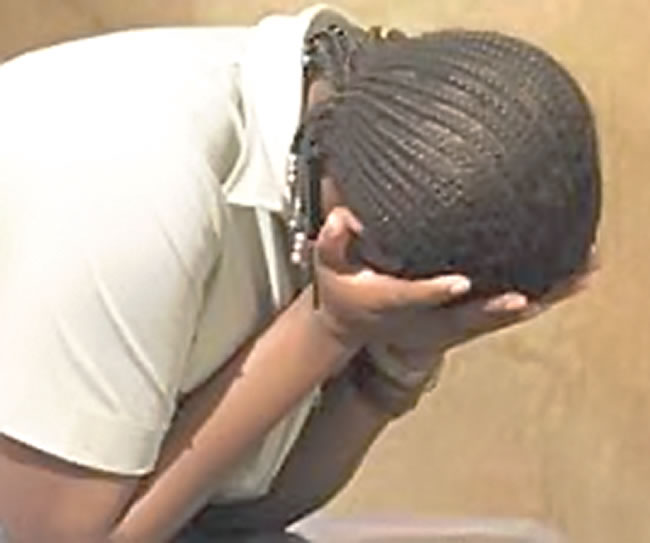Sexual abuse is one of the most traumatizing forms of violence against any human being let alone done to a child. The Nigerian media has reported an increase in the frequency of sexual child abuse cases in various part of the country.
The World Health Organization (WHO) defines Child Sexual Abuse (CSA) as the involvement of a child in sexual activity that he or she does not fully comprehend, is unable to give informed consent to, or for which the child is not developmentally prepared and cannot give consent, or that violate the laws or social taboos of society.
It is important to stress that child sexual abuse goes beyond the actual sexual act as any form of sexual touching, exposure to phonographic content or even taking of sexual images through filming or photography will amount to child sexual abuse. Research has shown that child sexual abuse has been estimated at 19.7% for females and 7.9% for males.
According to UNICEF, six out of ten children in Nigeria experience emotional, physical or sexual abuse before the age of 18. The Nigerian police have also recorded 717 rape cases between January and May in 2020 as 95% of child sexual abuses go unreported because of fear of stigmatization, and 90% of child abuse victims know their abuser and despite overwhelming reported cases of sexual assaults, Nigeria has recorded only a significant number of rape convictions in its legal history.
The Criminal code which is applicable in the southern part of Nigeria and Penal code which is applicable in the Northern Nigeria both make provisions for the Offence of Rape and defilement.
Section 216 of the criminal code regards the indecent Treatment of boys under fourteen as an offence of felony liable to imprisonment for seven years if done without consent. Section 218 of the criminal code recognizes the defilement of girls under the age of thirteen as an offence of felony liable to imprisonment for life. Section 221 of the criminal code provides that the defilement of girls under sixteen and above thirteen as an offence of misdemeanors liable for imprisonment of two years.
The Penal code also recognizes the offence of child rape under Section 282 of the penal code which provides that: A man is said to commit rape who has sexual intercourse with a woman in any of the following circumstances: against her will; without her consent; with her consent, when her consent has been obtained by putting her in fear of death or of hurt; with her consent, when the man knows that he is not her husband and that her consent is given because she believes that he is another man to whom she is or believes herself to be lawfully married and also with or without her consent, when she is under fourteen years of age or of unsound mind.
The Child Rights Act adopted by Nigeria in 2003 requires that the well-being of every child must be respected and considered paramount and provides that sex with a child is rape, and anyone who has sexual intercourse with a child is liable to imprisonment for life upon conviction.
In U.S. Supreme Court decision of Coy v. Iowa (1988) the court held that It is difficult to achieve justice for sexually abused children in a judicial system designed for adults; thus, the sexually abused child remains a double victim in our contemporary judicial system. This has been a concern for decades especially in Nigerian courts where the burden of prove lies with the prosecuting counsel (the state). In the Nigerian case of CPL. ISAH AHMED v. THE NIGERIAN ARMY
(2010) LPELR-8969(CA); the court held that one of the requirement for the establishment of rape or sexual related assault is the act of penetration accompanied with the confessional statement of the accused person; or circumstantial evidence; or evidence of eye-witness of the crime to establish the guilt of the accused.
Child sexual abuse (CSA) cases are usually difficult to prosecute with testimony in court by child victims of sexual abuse resulting to further trauma. While Child rape is just a form of child sexual abuse, there are so many stories of child sexual abuse as studies have shown that adolescent who are being raped, become pregnant thereafter and others with
consequences of Vaginal or anal bleeding, Vaginal infection, Chronic pelvic pain and as worse as Suicide.
However, the Nigerian senate has made significant effort to curb the increasing rate of child sexual abuse cases through a new bill sponsored by Senator Oluremi Tinubu which has passed the third reading on amending the criminal code Act CAP. C.38, Laws of the Federal Republic of Nigeria 2004 on the expiration date for victims of rape or any form of sexual abuse to report their case from two months to as many years as the victim decides to take up the matter.
It should be mentioned that while there is no limitation to when a victim can report cases of sexual abuse to the police. There is however, a limitation on when charges can be filed and a case to be prosecuted (two months).
- Khadija Bala, Law student, Ahmadu Bello University (ABU), Zaria, sent this from Abuja.
YOU SHOULD NOT MISS THESE HEADLINES FROM NIGERIAN TRIBUNE








